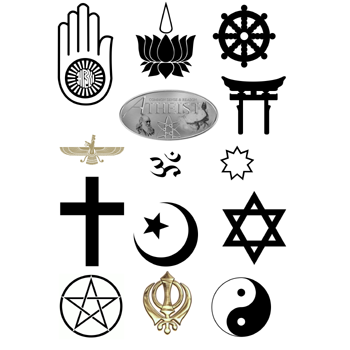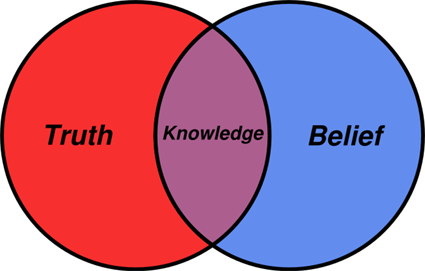Habits Formed By Our Belief Systems
HABITS FORMED BY OUR BELIEF SYSTEMS ~ ISSUE 198 ~ NOVEMBER 17, 2015
By Diane Gold
“Belief systems are the stories we tell ourselves to define our personal sense of ‘reality’,”
said Gerhard Adam in an October 3, 2011, in an article for Science 2.0.
 We are taught value systems when we are young which we accept or reject as we get older. We are exposed to rituals that accompany value systems, which we accept or reject as we get older. We always have the impressions of this exposure, no matter whether we decide to follow these systems or not.
We are taught value systems when we are young which we accept or reject as we get older. We are exposed to rituals that accompany value systems, which we accept or reject as we get older. We always have the impressions of this exposure, no matter whether we decide to follow these systems or not.
THE BEGINNINGS OF OUR BELIEF SYSTEMS
My very earliest memories are of being encouraged to speak up, speak out and question. I remember making trips to the library weekly where I had my own library card at 2 or 3 years of age. I also remember, later in life, at the ripe old age of 5 or, possibly, 6 or 7, getting The Gift Of Life, a booklet (I now know was created by Planned Parenthood in 1951) that described how a baby was born and being encouraged to ask about it.
My questions about almost everything were welcomed and answered in a way that was meant for me to understand the true nature of the answer, as opposed to some half-baked answer that would take limited effort on the part of my parents to insure my understanding.
From this, I developed a set of beliefs, mores, life concepts that have led me in this life.
Many of us do not experience the privilege of this open questioning forum that I had. We are brought up to acknowledge the beliefs of our family that are reinforced throughout the family day, through ritual, study of the specific belief system, regularly scheduled meeting with others who have the same belief system and the study of historic references to fortify the beliefs. Questions are often dismissed, discouraged or not permitted since the belief system has been established to be one way.
HABITS FORMED BY BELIEF SYSTEMS
Both for those of us who are encouraged to question and for those of us who are required to follow along, we form habits. If the system seems to agree with us, we may get a feeling of warmth when we go to perform a ritual related to the system. If it is an open system that we are developing for ourselves, we might automatically go study something when questions about the universe are asked. We use the teachings of our family and our ancestors, book knowledge, school knowledge, how we are accepted by others into specific groups of present day thinking, how we have groomed ourselves in terms of what we do with what we believe.
No matter which way our belief systems take us, we are convinced we are right. So much so that we break the code of not bringing the topics of politics or religion to discussions with friends or family. We are compelled to do so.
To enhance our belief and to share our customs and understanding of this belief system, we spread the word. We have studied it, we have repeated rituals that pertain to it, whether they are prayer, taking time to read or being active in some way, be it alone or in a group. We are so convinced about this way that it is our duty to spread the wealth of our knowledge.
SPREADING OUR BELIEF SYSTEMS, FORMING HABITS
When we repeatedly talk about our belief system, we are forming a habit. So, each time we encounter another person; it is easier and easier to slip into discussion about what we believe. And it happens that more frequently, we are in this discussion.
The more fervor we generate, the more passionately we share our knowledge.
The more we believe in a particular system, the less we tend to listen to someone else, even though, if it is our duty to communicate, it would seem to be our duty to listen, as well. Even though we think we are spreading knowledge, we often forget to see whether what we are being understood.
Then this talking at people becomes a habit. We may only be interested in talking to people who immediately get our point of view, in which case, we don’t have to stop much and listen. But, belief happens through understanding, so it would seem that listening would be a requirement.
CONCLUSION
We all care about our belief systems, what we have taken for our own from which to live and act. If we have made it this far, however far that is, and don’t have a name for the values and beliefs from which we act; we may not need one. If we do have a name for it, let us stand tall in our beliefs.
No matter what system we follow, advocate, take as our own; it is imperative that we respect the value of life. I am sure all belief systems have a place for this, although, it is hard for me to understand how the preservation of human life can take a back seat to principle in some belief systems when there seem to be other choices.
ACTION STEPS
To follow are some action steps that may open the mind or, at least, develop understanding of others.
 1) Begin or continue to study yours and other belief systems. This will help in understanding each other.
1) Begin or continue to study yours and other belief systems. This will help in understanding each other.
2) Listen to others when offering a point of view, and do everything possible to see it someone else’s way.
3) Do not be closed to changing your mind.
4) Show forgiveness.
5) Don’t be prejudiced. We all get comfortable with stereotypes. Let’s make every effort to know that every person or group deserves freedom. If that freedom infringes on someone else, s/he has the responsibility to resolve conflict in the most harmless way possible.
6) Find the good in every belief system. When you find something intolerable, examine yourself.
7) When belief systems are involved, so are habits. Understand that creating harmony and bridging the gap between belief systems has to do with changing habits. Create small actions requiring new behaviors which will, in turn, cause habit change, which will, create harmony.
![]()
If you wish to share your story, please hit reply in your email program to be contacted.
If you need habit help, go to warriorsofweight-consulting.
![]()
FEEDBACK
We value your feedback very much.
Please leave a comment below.
Please LIKE us on the website and at
WarriorsOfWeight on Facebook.
You can also follow us on Twitter @warriorsoweight.
Thanks.
![]()
DIANE GOLD, PUBLISHER AND AUTHOR
Diane Gold, Founder of Warriors of Weight, Turning Habits Into Health, is a mentor in tai chi, kung fu and meditation, a music, fitness and stress expert, dedicated mom, studying peaceful conflict resolution, habit replacement and certified in plant-based nutrition.
She believes in evolving on a daily basis through study, conversation, healthy work.
She says,
“The way we conduct ourselves in adversity shows our way, our belief system. If we show compassion, forgiveness and humility during unsettling times, our belief system has led us to be there. If we show aggressive behavior and vengeance, we may not have found a sustainable solution through our belief system.
“We always have a chance to grow and evolve, as long as we wake up. Let us learn why we act the way we do and listen to the heart of the world in the process.
“And, finally, let’s take overall good care of ourselves because we are so worth it.”
![]()
EXERCISE OF THE WEEK
IS BELIEVING ENOUGH TO APPLY CHANGE.![]()







